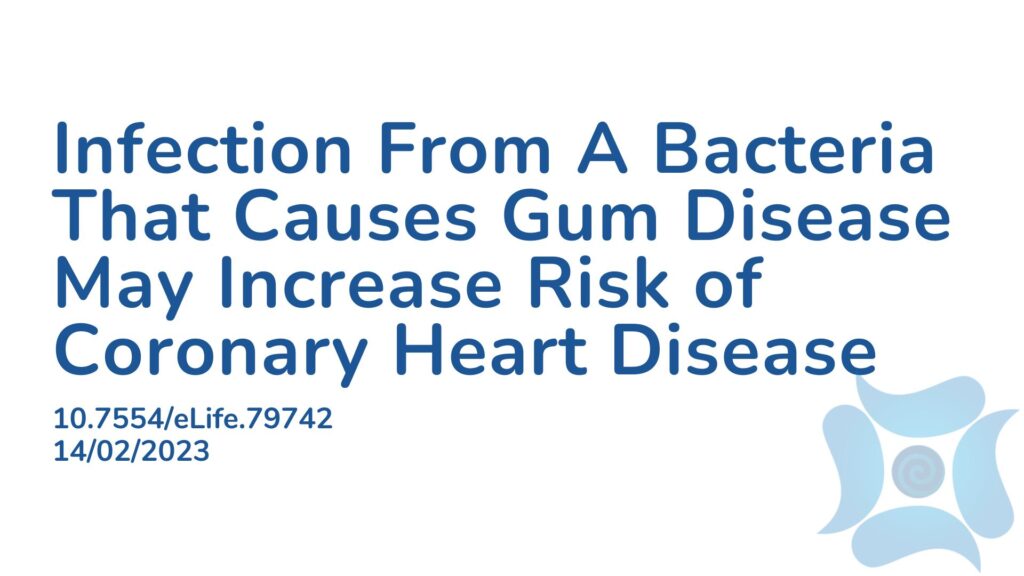Summary:
A combination of genetic and environmental risk factors contribute to coronary heart disease (CHD), which is responsible for approximately 10% of deaths in Australia per year. CHD is caused by a buildup of plaque in the arteries and can also cause heart attacks. Previous literature has found links between infections and CHD, as recurring and persistent infections cause inflammation which increase heart disease risk. This study looked at the oral bacterium Fusobacterium nucleatum, which is a bacteria that causes gum disease and bad breath, and found that it can contribute to the development of CHD. This research is extremely important as it provides a better understanding of the risk factors for CHD which can largely influence future advice on how to prevent CHD.
Abstract:
Coronary heart disease (CHD) is one of the most pressing health problems of our time and a major cause of preventable death. CHD results from complex interactions between genetic and environmental factors. Using multiplex serological testing for persistent or frequently recurring infections and genome-wide analysis in a prospective population study, we delineate the respective and combined influences of genetic variation, infections, and low-grade inflammation on the risk of incident CHD. Study participants are enrolled in the CoLaus|PsyCoLaus study, a longitudinal, population-based cohort with baseline assessments from 2003 through 2008 and follow-up visits every 5 years. We analyzed a subgroup of 3459 individuals with available genome-wide genotyping data and immunoglobulin G levels for 22 persistent or frequently recurring pathogens. All reported CHD events were evaluated by a panel of specialists. We identified independent associations with incident CHD using univariable and multivariable stepwise Cox proportional hazards regression analyses. Of the 3459 study participants, 210 (6.07%) had at least one CHD event during the 12 years of follow-up. Multivariable stepwise Cox regression analysis, adjusted for known cardiovascular risk factors, socioeconomic status, and statin intake, revealed that high polygenic risk (hazard ratio [HR] 1.31, 95% CI 1.10–1.56, p=2.64 × 10−3) and infection with Fusobacterium nucleatum (HR 1.63, 95% CI 1.08–2.45, p=1.99 × 10−2) were independently associated with incident CHD. In a prospective, population-based cohort, high polygenic risk and infection with F. nucleatum have a small, yet independent impact on CHD risk.
Article Publication Date: 14/02/2023
DOI: 10.7554/eLife.79742




